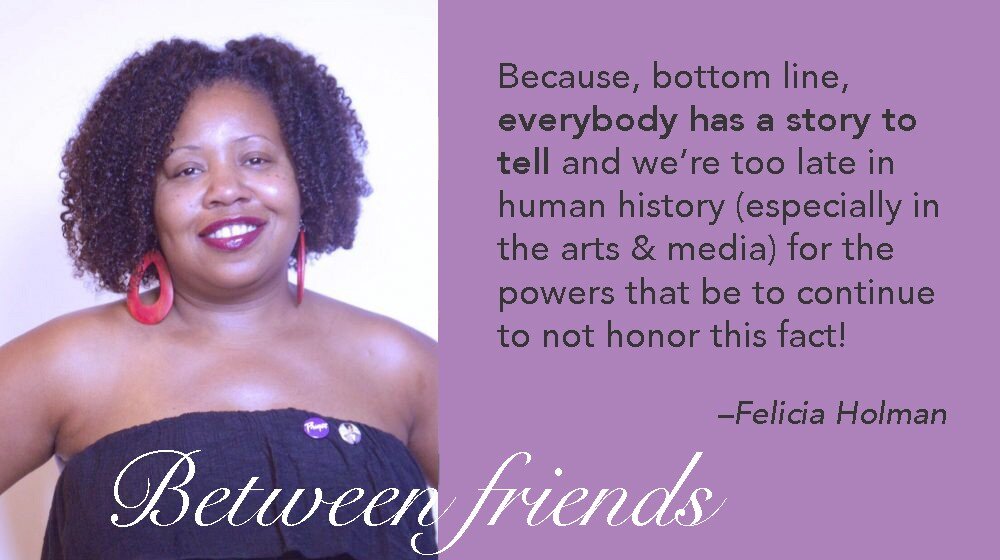The City Bureau network is full of incredibly committed community builders. Their contributions are at the bedrock of what we do and a fundamental part of what makes City Bureau a force for change. Get acquainted with the City Bureau family as part of our new blog series Between Friends.
By City Bureau
(Photo by Sharmon Jarmon)
Who are you and what do you do?
I’m Felicia Holman, director of Links Hall’s Performance Rental Program, also known as the Linkage Partnerships program. I’m a native Chicagoan, a freelance interdisciplinary artist/facilitator and a co-founding member of Chicago’s Honey Pot Performance. In each of my “artrepreneurial” roles, I create, support and present innovative interdisciplinary art which centers community & critical thought.
How did you come to be a part of the City Bureau Community?
Through my work at Links Hall over the past couple years, specifically [fostering] racial and cultural equity in Chicago’s arts media coverage, I was the guest presenter for Public Newsroom #59 on problematic art reviews. I’ve also [supported] other City Bureau events such as the Office Warming Party, the Soap Box Ball and their first Documenters Summit.
What mediums do you use to tell stories you think need to be told? What are you working on right now?
Conversation, writing (primarily essays) and performance, also known as “embodied storytelling.” At Links Hall, I’m working on transitioning from Communication Director into my new role as rental director and lead programmer of the organization’s 41st performance season. In my solo artistic practice, I’m in grant and residency submission mode for a project that unpacks the interpersonal experiences & narratives of a Gen X-er Black woman who was homeschooled on Chicago’s South Side. In my freelance lane, I’m guest blogging and facilitating workshops on varied topics, from audience development to masturbation.
When did you know you wanted to be a storyteller?
Well, let’s see, I was born dancing; started reading at age two; started journaling at six; grew up watching programs like Masterpiece Theater, Great Performances and the Clio Awards on PBS. I wrote a short mystery, versus taking an entrance exam, for admission into my private middle school. Was a mainstay on my high school’s scriptwriting and drama and dance teams and won a Performance of Literature award in college. Post-college is when I decided to pursue storytelling as a career path.
Where are you now, in your creative and/or professional life?
I’m transitioning professionally into my new role as lead programmer of Links Hall’s 41st season. Artistically, I’m submitting applications for the development and presentation of my solo writing and performance project. As a freelancer, I’m blogging and presenting and actively seeking opportunities to do more of both.
Why do you believe an equitable and inclusive approach to storytelling is important?
Because, bottom line, everybody has a story to tell and we’re too late in human history, especially in the arts and media, for the powers that be to continue to not honor this fact! Agency, autonomy and mobility are sacred quality-of-life pillars to me: Diversity, equity and inclusion is essential to my own interdisciplinary creative practice and to my intersectionally marginalized creative community’s [practice] as well.
Support City Bureau’s community-building and storytelling work by becoming a City Bureau Press Club member today.
To get twice-monthly emails including Chicago news and events, sign up for City Bureau’s Chicago newsletter.

